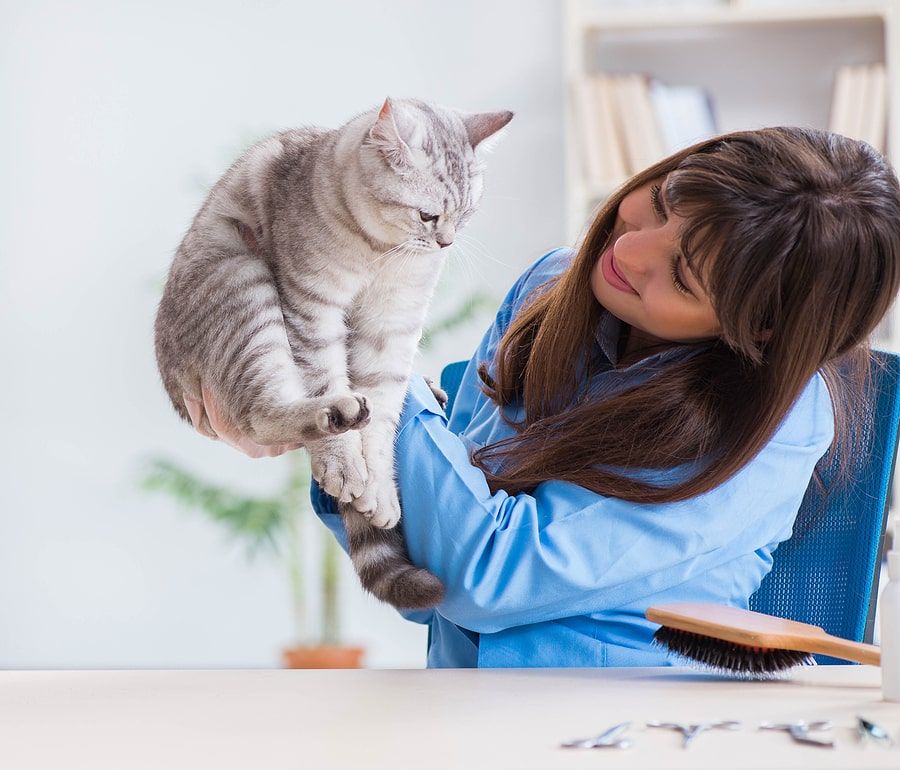Why Would Albumin Levels Be High in Cats?
With wonderful breeds to choose from, it's no surprise that cats are beloved members of many families. Preventative care exams and regular exercise go a long way in keeping feline family members feeling energetic and happy for years and years.
Sometimes, however, routine bloodwork can reveal something unusual going on. If that happens, it's natural to feel worried. Your veterinarian can help you get some quick answers to help you and your cat feel better.

Why might your cat need blood work?
- Routine wellness information. Often, blood work is part of a routine wellness visit to assess overall health and establish a baseline understanding of your cat's health. It's common for your vet to recommend routine testing every few years or so.
- Diagnose potential issues. Blood work can also help your vet diagnose various conditions, from minor allergies to serious illnesses like cancer. Testing will likely be the next step if your cat displays unusual symptoms - like vomiting, diarrhea, or low energy.
Blood tests are particularly helpful because they can tell your vet a lot about the health of your pet's internal organs, like the liver or kidneys. If their results show abnormal levels, they'll know something needs a closer look.
What is albumin?
Albumin is one level your vet looks for in your cat's blood work. It is produced in the liver. Albumin levels in cats are especially important because they correlate with the health levels of different organs, like the kidney, liver, and intestines. These levels can also reveal if there are any issues with blood loss (like internal hemorrhaging) or overall hydration - all-important general health markers.
If your cat's blood work reveals abnormal albumin levels, this means his albumin is either too low or too high. It's more likely to see low albumin levels than high ones. Low levels could indicate an issue such as parasites, liver disease, or pancreatitis that needs further intervention.
High albumin in cats
While it's more common to see low albumin levels, it's also possible to see high ones. Why would albumin be high in your cat's blood work?
High albumin causes typically boil down to one main issue: dehydration. Dehydration can result from different situations:
- Illness: It's common for cats or other pets to get dehydrated when they're ill. Just like humans, dehydration is a primary concern if cats suffer from a disease or health issue that causes more water loss than normal. Diabetes, kidney disease, vomiting, or diarrhea can all result in increased water loss.
- Environmental factors. Sometimes, cats struggle to take in enough water if their water isn't easy to access. This might be because the water bowl is in a highly trafficked part of the home, or other animals use the same water bowl. In these cases, you might notice that your cat avoids drinking water instead of taking in their daily amount.
If your vet tells you your cat's high albumin levels stem from dehydration, you may wonder what to do next.
While your vet may have a plan for getting your cat's albumin levels back on track, you can also watch for signs of dehydration. You may notice that your cat is dehydrated if she is weak or more tired than normal, if she isn't eating, or if her mucous membranes (like her nose) are dry.
Your vet may also suggest rehydrating your cat or encouraging them to drink more water. For instance, you might provide your cat with a water dish accessible daily. Putting the dish in a secluded space - somewhere it won't be bothered by family members or other pets - could encourage your cat to spend enough time drinking water. If your cat is a good eater, you could also consider adding water to your cat's food. Water, broth, or juice can easily be added to dry food to encourage hydration.
If you think your cat may need blood work to diagnose an underlying issue, don't hesitate. Contact Forever Vets to schedule an appointment today.


